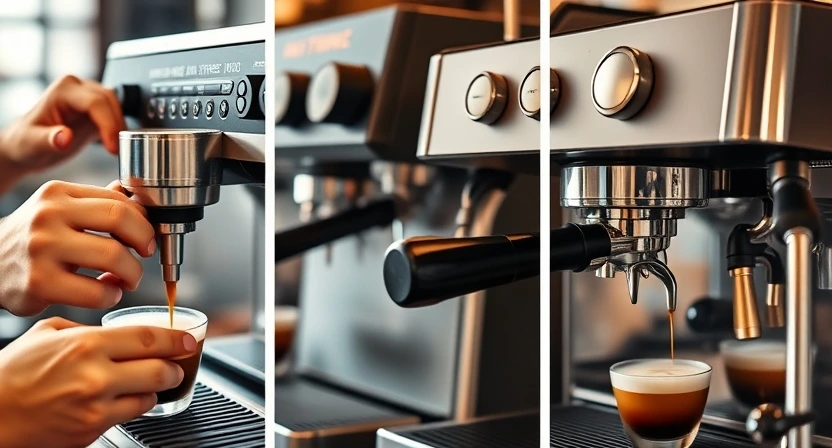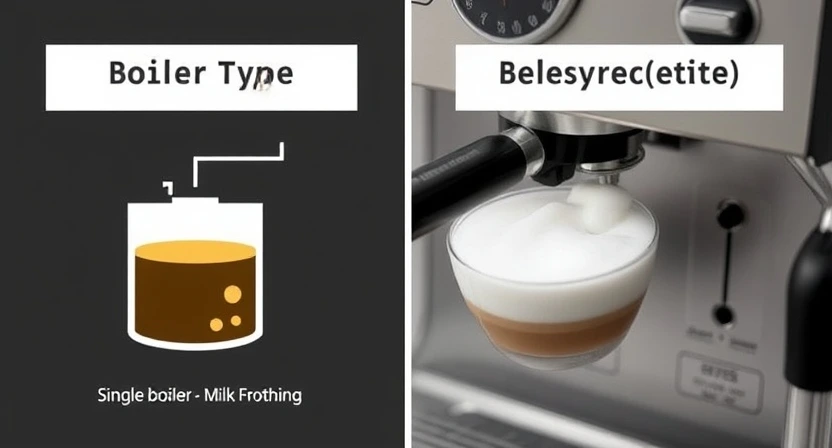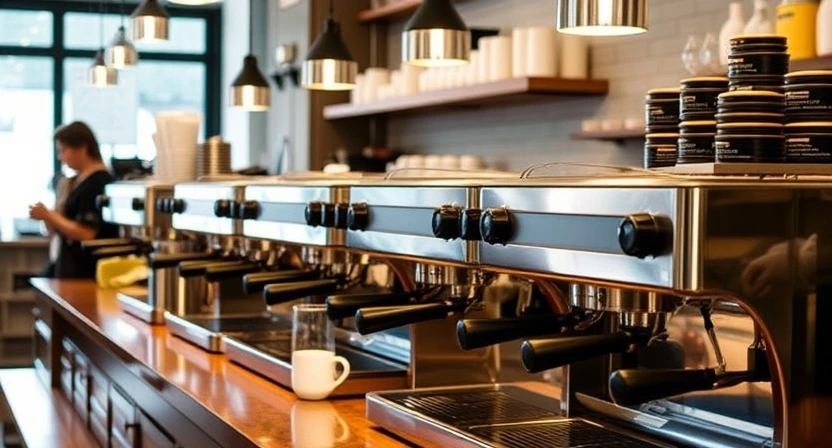1. Assess Your Business Needs

Before diving into the specifics, take a moment to evaluate your coffee shop’s unique requirements:
- Volume of Customers: How many drinks will you serve daily? High-traffic establishments may need a high-capacity machine.
- Menu Offerings: Will you only serve espresso shots, or do you also need capabilities for milk-based drinks like lattes and cappuccinos?
- Staff Expertise: Are your baristas experienced, or do you need a machine that’s beginner-friendly?
2. Types of Commercial Espresso Machines

Understanding the types of machines available is key to making an informed decision:
- Semi-Automatic Machines
These machines give baristas control over the brewing process, including grinding, tamping, and timing the shot. Ideal for establishments that value artisan preparation and experienced staff. - Automatic Machines
These machines automate the brewing process with programmable shot volumes. They strike a balance between efficiency and quality, making them suitable for medium to high-volume shops. - Super-Automatic Machines
These machines handle everything from grinding beans to frothing milk. Perfect for businesses with high volume and limited skilled baristas but may sacrifice some control over customization. - Manual Machines
A choice for niche or specialty coffee shops aiming for an artisanal touch. These require high expertise but offer unmatched control.
3. Key Features to Consider

When shopping for an espresso machine, prioritize the following features:
- Boiler Type:
- Single Boiler: Compact but limits multitasking between brewing and steaming.
- Dual Boiler: Allows simultaneous brewing and steaming, ideal for busy establishments.
- Capacity: Ensure the machine can handle peak customer loads without delays. Look for models with sufficient group heads and water reservoir capacity.
- Durability: Choose a machine built with high-quality materials like stainless steel, ensuring it withstands daily use.
- Ease of Maintenance: Machines with self-cleaning functions and accessible components reduce downtime and maintenance costs.
- Milk Frothing Systems: If you serve milk-based drinks, assess whether the steam wands or automated frothing systems meet your needs.
- Energy Efficiency: Energy-saving modes and certifications can lower operating costs over time.
4. Budget Considerations

Set a budget that balances quality and affordability. While higher-end models may cost more upfront, they often deliver long-term savings through durability and efficiency. Factor in additional expenses like grinders, water filters, and maintenance tools.
5. Plan for Growth

Consider your future business goals. A machine that meets your needs today might not be sufficient as your coffee shop grows. Invest in a machine with the scalability to handle increased demand.
Final Thoughts
Selecting the perfect commercial espresso machine is a significant investment that requires careful consideration. By understanding your business needs, researching options, and prioritizing quality and efficiency, you can find a machine that elevates your coffee offerings and keeps your customers coming back.
At ProntoCofee, we’re here to help you make informed decisions to set your coffee shop up for success. Stay tuned for more expert tips and resources to keep your business brewing strong!





